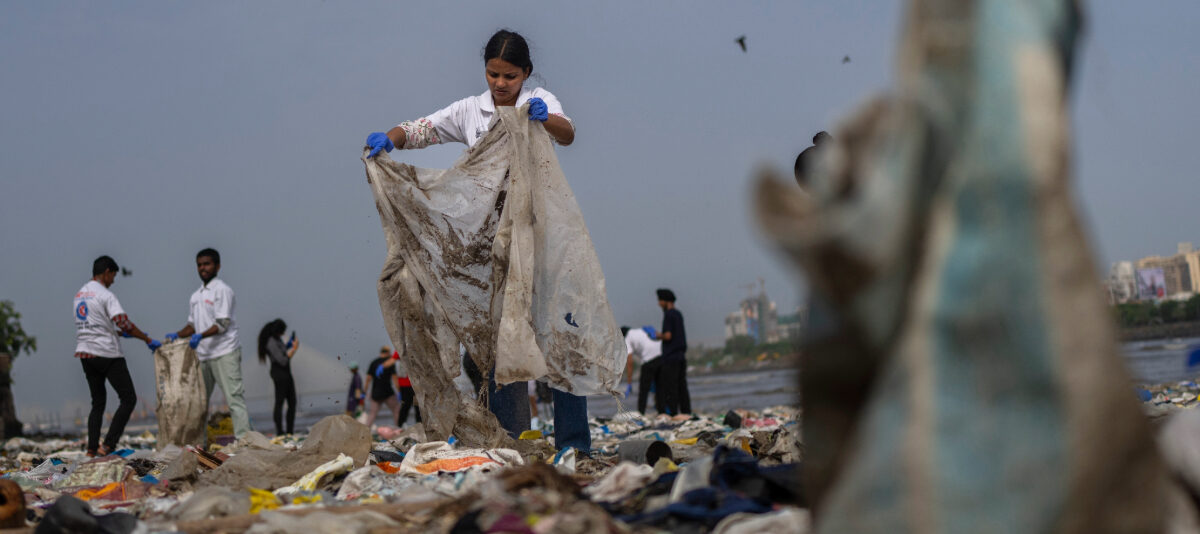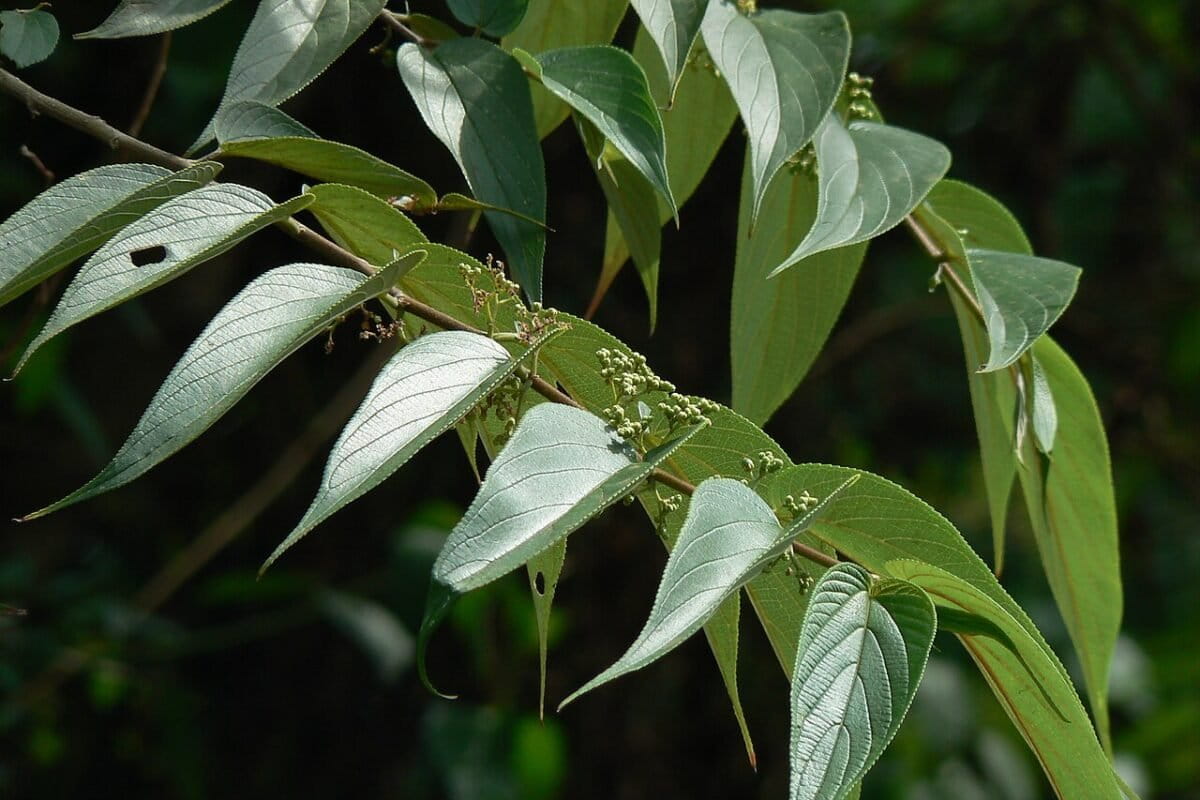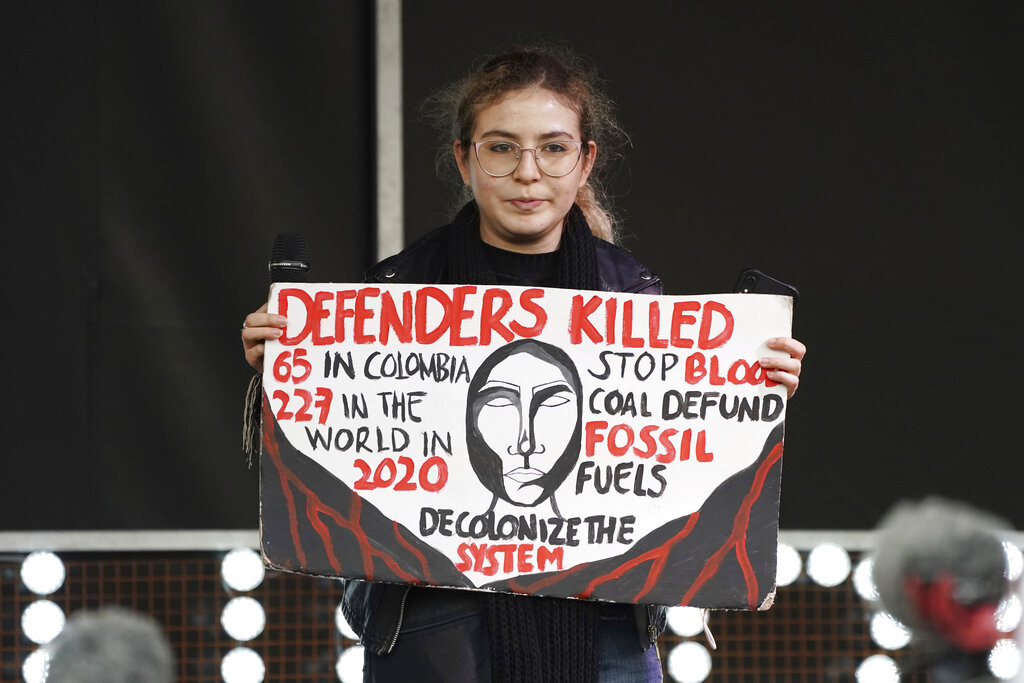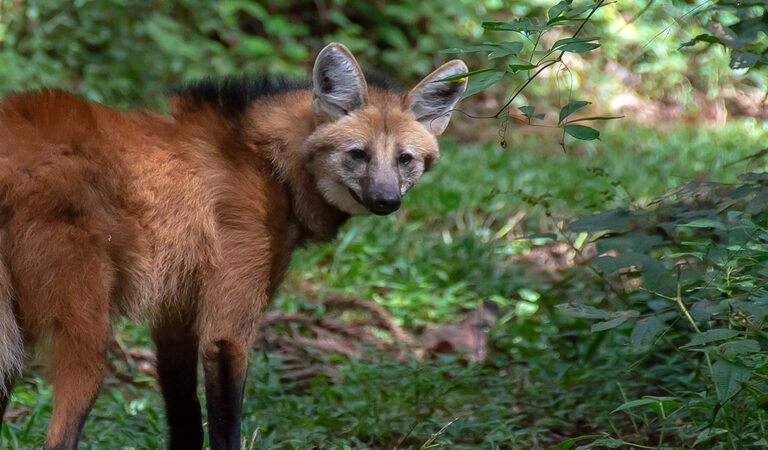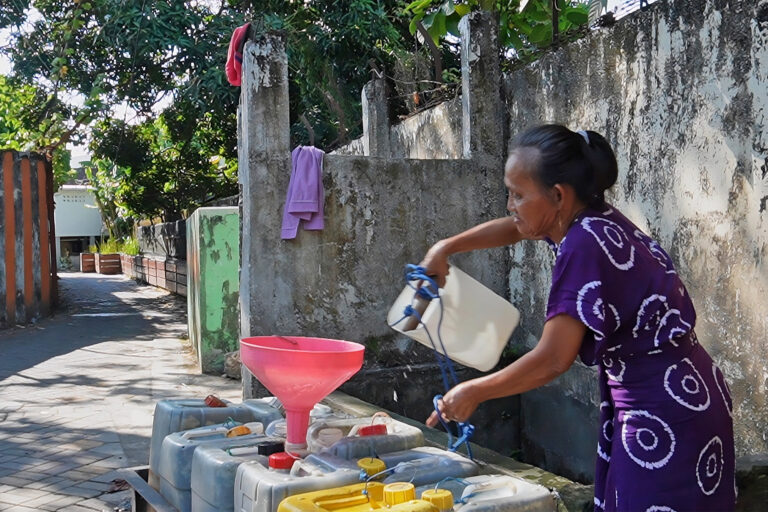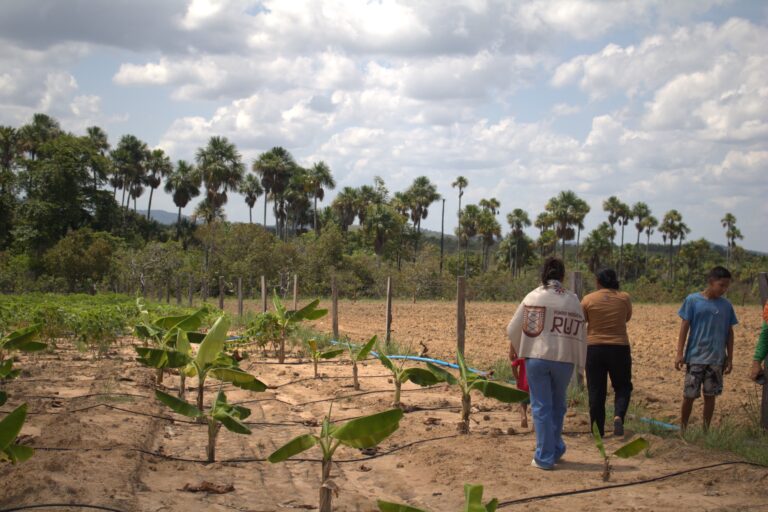- The NGO GRAIN defines climate justice as ensuring frontline African communities can control their land, seeds and food systems rather than being pushed toward export-oriented, corporate agriculture.
- Ange-David Baïmey, the group’s program coordinator for Africa, tells Mongabay that climate change is worsening farmers’ access to land, water and resilient seeds, while multinational seed and input companies deepen dependency and erode traditional seed systems.
- He says formal U.N. climate negotiations are ineffective, with GRAIN instead using the COP30 conference to engage with civil society at the People’s COP to advance food sovereignty and agroecology.
- For Baïmey, a COP30 “victory” would mean rejecting carbon markets, which he argues facilitate land grabbing and undermine food security across Africa.
At the COP30 climate summit currently underway in Belém, Brazil, adapting to climate change impacts is a major focus of discussions. This is particularly the case for delegates from Africa, where agriculture, on which the majority of the continent’s people rely for their livelihoods, is directly affected by erratic and extreme weather and rising average temperatures.
The NGO GRAIN works with farming communities in Africa and elsewhere to protect their food sovereignty, especially in the face of industrial agricultural models that shift production toward commercial seeds, synthetic fertilizers and pesticides, and commodity crops.
GRAIN’s program coordinator for Africa, Ange-David Baïmey, sat down with Mongabay’s Yannick Kenné to explain the group’s participation at COP30, where it’s less interested in the formal negotiations than in the space created to exchange information about climate change adaptation strategies with like-minded civil society groups and push for climate justice.
The following interview has been translated from French.

Mongabay: What does climate justice mean for GRAIN? What does it mean for the communities you work with in Africa?
Ange-David Baïmey: For us at GRAIN, climate justice means taking into account the realities of grassroots communities. Various actors are trying to advance a climate justice agenda in a particular way, but for us, this has its limits. When we talk about climate justice, it means ensuring that the communities most affected by its impacts can find solutions to their problems.
When we talk about climate justice in the agriculture and food sector, we’re talking about food sovereignty, which for us means the right of communities to eat what they want and not depend on imports and all that comes with that. For example, in Cameroon, the multinational Socfin/Bolloré prevents communities from growing plantains, their staple food, and instead imposes an “extractive” agro-industrial model on them in the form of oil palm plantations.
Our concept of climate justice runs counter to this. We work to make sure communities can grow their plantains, their yams and cocoyams, to feed themselves and their families.
Climate justice is crucial. As you know, Africa produces very little [greenhouse gas] pollution (less than 4% of global CO2 emissions), but suffers so much damage from extreme weather as well as other structural and economic damage. But countries in the Global North still come to African countries with development models focused on cash crops [for export].
For us, climate justice means fighting for food sovereignty and for communities to be able to control their land and produce the crops they want.
Mongabay: How are the communities you work with affected by climate change?
Ange-David Baïmey: Communities are struggling to access land for farming. For farmers, climate change means growing seasons have become inconsistent, with delayed or excessive rainfall. This can negatively impact crops and affect production. So we see that questions of access to water, to land and to seeds become very important.
What we call peasant seeds, which have been preserved by our parents for years, are disappearing because multinational corporations and research institutes are making sterile seeds in labs and forcing people to buy these “improved seeds.” But these seeds can’t be harvested and replanted again across multiple growing seasons, so people have to buy them again every year. On top of that, when you plant improved seeds, you need fertilizers, pesticides, herbicides and other treatments, etc.
The multinational corporations want to control seeds, and this exacerbates the negative impacts of climate change on these communities. They become dependent on these companies for their seeds, fertilizers and pesticides. Meanwhile, farmer-saved seeds, passed down through millennia, remain productive and viable.
It is true that rising temperatures affect productivity, but traditional seeds have demonstrated their resilience to local conditions, and we must work to maintain this capacity.

Mongabay: What is the link between climate negotiations and discussions about food systems, security and sovereignty?
Ange-David Baïmey: Climate negotiations are so complex. It’s not easy for NGOs to navigate the United Nations system because there are so many working groups. The fact is, we’ve been negotiating for 30 years, and we keep going to the COP. We know more or less how the negotiations end. Then we go to the next COP, and there is still no solution.
These negotiations don’t provide space for people’s hopes and aspirations anymore. So that is why GRAIN will attend the People’s COP, because Brazilian social movements have created a space for dialogue between civil society organizations and communities, and that’s where we can really discuss how to combat climate change.
We are not going to talk about the negotiations as such, but rather talk about the solutions we can take forward to address climate justice issues, and about food sovereignty, which is truly fundamental.
If the food system continues to be controlled by multinationals, nothing good will come of it. These companies promote supposed “nature-based solutions,” like carbon offsetting, or “smart agriculture,” which have extremely negative impacts on the food systems in Africa and beyond.
We don’t support this system. We advocate for peasant agroecology and the struggle for global food sovereignty. This means community control of seeds, land and water.
Mongabay: What would you consider a victory for African countries at COP30?
Ange-David Baïmey: For us, victory at the COP would be if [actors in] the industrial food system completely stop pushing the idea of a “carbon market.”
That would be a victory because it is a very violent mechanism, one which allows fossil fuel and industrial agriculture companies to take land in other countries, and effectively sell it on the “carbon market.” This mechanism must be completely dismantled, as it promotes agricultural land grabbing and threatens food security and sovereignty.
Banner image: Farmers at Yangambi, Democratic Republic of Congo. Image by Axel Fassio/CIFOR via Flickr (CC BY-NC-ND 2.0)
This interview was first published here in French on Nov. 11, 2025.
‘Weather whiplash’ cycles of floods & droughts imperil Nigerian farming
Report calls for agroecological rethink of Africa’s food amid $61b industrial plan
Photos: Ethiopian farmers blend tradition, innovation to sustain centuries-old agriculture
Burkina Faso’s women farmers reviving the land with fertilizer trees
FEEDBACK: Use this form to send a message to the author of this post. If you want to post a public comment, you can do that at the bottom of the page.



